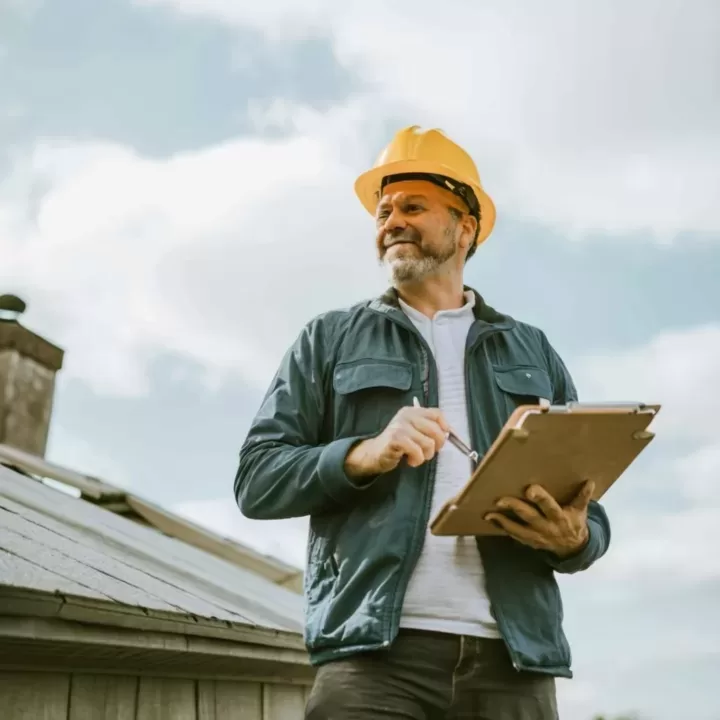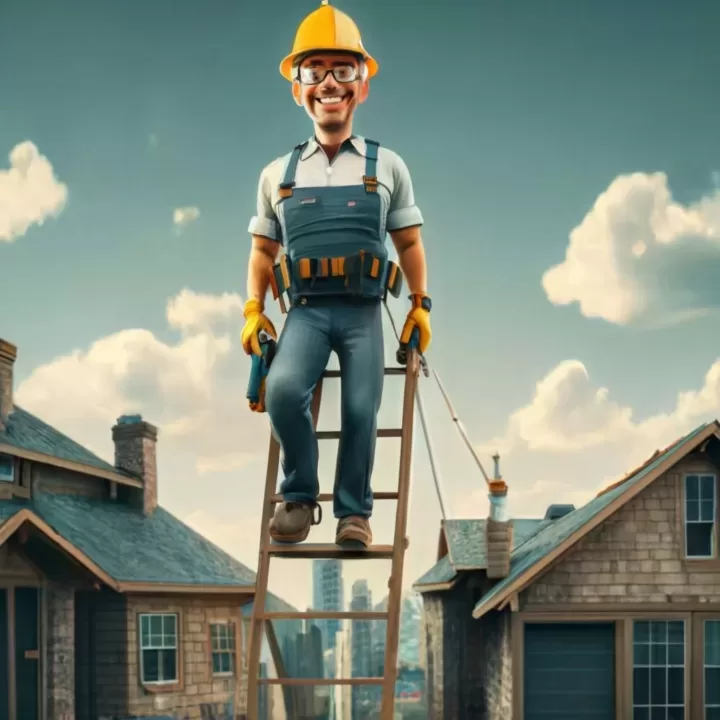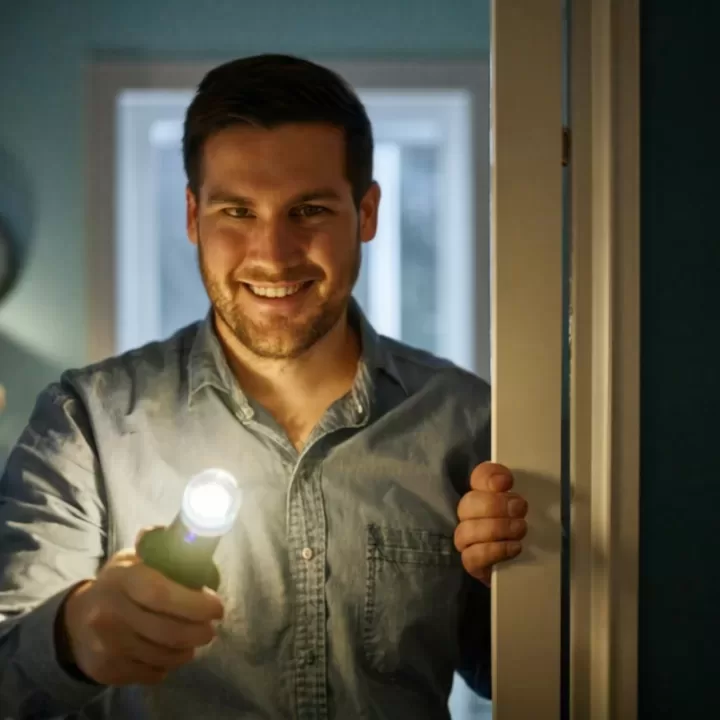Can We Skip the Home Inspection?
No! Home Buyers should never skip a home inspection. The value relative to the cost is very high. The inspection report will tell you about all of the major elements and systems in the property. Shadowing the inspector will show you things that will save you time and money later.
Where is the main water shutoff valve? Where is the furnace filter located and how well maintained is the furnace? What is the age of the roof and when will I need a new one? Are there any water leaks? How bad are they? Are the appliances functional? What about electrical? You have to know all of this to make a good buying decision. What if the inspection finds that the electrical needs updating or the roof is leaking into the attic or what if there’s asbestos in the kids’ rooms? Get a home inspection for your own sanity’s sake.
Unless you’re an experienced contractor or similar, you need a qualified inspector.
Houses are complicated and dynamic and regulations change over time. Roof, attic, sump pumps, electric, plumbing, insulation, heating, cooling – the list goes on. A home inspector can tell you where each house system is at relative to its useful system life. They will tell you what it could cost to repair or replace. You use that information to help make your buying decision.
So yes, inspections are important. Home inspections are significant because they provide buyers with a comprehensive report on the condition of the property they are interested in, empowering them to make informed decisions.

Home inspections are often a source of confusion for buyers. Some common questions include: What is included in a home inspection? How much does it cost? Is it required? While home inspections are not required by law, they are highly recommended. The cost of a home inspection varies depending on the location and size of the property, but it is a small price to pay for the peace of mind that comes with knowing the condition of the property.
Key Takeaways
- A home inspection is a crucial step in the home buying process that provides buyers with a detailed report of the condition of the property
- Home inspections typically include an evaluation of the structure, roof, foundation, plumbing, electrical, and heating and cooling system
- While home inspections are not required by law, they are highly recommended and can save buyers from costly repairs down the line
Understanding Home Inspection
Home inspection is a crucial aspect of the home buying process that involves a thorough evaluation of a property’s condition, structure, and systems. Its design aims to identify potential problems or safety issues that may impact the property’s value, safety, or habitability.
Your dream home will quickly become your nightmare if you find major defects after you’ve moved in.
The Inspection Process

The inspection process typically involves a visual examination of the major components of a property, including the roof, foundation, structure, electrical, heating, plumbing, walls, attic, basement, exterior, ceilings, floors, windows, kitchen, bathrooms, HVAC, appliances, interior, water heater, gutters, faucets, pipes, furnace, ventilation, air conditioning, and electrical system. The inspection may also include a review of the garage, yard, electrical outlets, and other areas of the property as necessary.
The Role of a Home Inspector
A professional home inspector is a trained and certified individual who conducts a full inspection of the property. They are responsible for identifying potential problems and safety issues, and providing a detailed report of their findings. Home inspectors are typically certified by organizations such as the Canadian Association of Home and Property Inspectors or the Ontario Association of Home Inspectors.
A home inspector is not emotionally invested in the home. Their role is to objectively identify defects often assigning a price, timeline, and recommendation to each finding. They will not be swayed by how nicely staged the property is.
Key Components of a Home Inspection
The key components of a home inspection include the roof, foundation, structure, electrical, heating, plumbing, walls, attic, basement, exterior, ceilings, floors, windows, kitchen, bathrooms, HVAC, appliances, interior, water heater, gutters, faucets, pipes, furnace, ventilation, air conditioning, and electrical system. A home inspection may also include a review of the garage, yard, electrical outlets, and other areas of the property as necessary.
Cost and Time Considerations
The cost and time required for a home inspection can vary depending on the size and complexity of the property. Homebuyers should generally budget for the cost of a home inspection as part of their overall property investment. A home inspection typically takes a few hours to complete, and the inspection report is usually available within a few days.
Potential Problems and Solutions
A home inspection may identify potential problems or safety issues with the property, such as foundation issues, electrical problems, or water leaks. Homebuyers can use the inspection report to negotiate repairs or replacements with the seller before finalizing the purchase. In some cases, major defects or safety issues may warrant the cancellation of the purchase agreement. If you don’t hire an inspector, you are relying entirely on the seller’s Disclosure Statement, which is risky.
The Importance of a Home Inspection in Real Estate Transactions
Home inspection is an important aspect of the real estate transaction process that provides homebuyers with protection and peace of mind. It allows them to make informed decisions about the property and negotiate repairs or replacements with the seller before finalizing the purchase. Real estate agents may also provide referrals to trained professionals to help homebuyers navigate the home inspection process and understand the inspection report.

Is a property inspection critical? It can save you hundreds of thousands of dollars. Consider this: your home inspector goes into the attic and finds a rat infestation. Or they flash a light behind a stud wall in the half finished basement and see an epic foundation crack Or the report that the electrical system is ancient “knob and tube”. That’ll cost $40,000 to replace. Findings like these are common and can completely change your buy/no buy decision.
Home inspection is a critical step in the home buying process that can help homebuyers avoid potential money pits and major problems with the property. The home inspector is only one of the critical pros you should engage.
Frequently Asked Questions
How much do inspections cost?
Nearly always in or around $500 US or CDN. However, the prices are completely market and option driven. You probably pay more in Manhattan or Toronto than you do in Northern Ontario. Other factors include the size of the house being inspected and the optional house elements you choose for inspection. Many inspectors do “add-on” services such as radon testing, pool and spa testing, and additional structures like sheds and workshops. Relative to other Closing Costs, the home inspection’s is minimal and provides tangible results.
Do new homes need a home inspection?
If you buy a brand new home from a registered builder who has paid to have the home covered by a provincially mandated new home warranty, such as the Tarion New Home Warranty (in Ontario), then no. The new home warranty is intended to cover off potential build quality issues with the home.
Who attends the home inspection?
The home inspector, usually there’s only one, but sometimes there will be a trainee with them. Or some inspectors work in teams breaking the home into systems with each inspector reporting on his share of those.
The Buyer is welcome and usually encouraged to shadow the home inspector – which is a fantastic idea. It allows the Buyer to get a unique second look at the home they are about to purchase. You really can learn a lot. You might find the main water shut off valve, or where the furnace filter goes, or how to get into the attic. Sometimes the Buyer’s agent will attend and try to smooth over any of the inspector’s rough edges or pessimistic comments.
Don’t worry, we did not forget Pre-Listing Inspections. Yes, as a homeowner, you can shadow the home inspector while he executes your Seller’s home inspection. Seeing things firsthand can give you context that will help you make your fix/no-fix decisions.
Are home inspections mandatory?
Rarely if ever are they mandatory unless someone involved in the lending process demands one. They certainly are not mandatory in Ontario. During the height of the Ontario housing bubble, buying a house was extremely competitive. Buyers explicitly waived home inspections to make their bids more attractive to sellers.
Do not make the mistake of underestimating the importance of a home inspection. At minimum, the finished report will serve as a reference handbook for your new home. It will tell you about the furnace, the air conditioner, the state of the electrical systems, and the plumbing. The report will point out anything to watch for large and small. Some items may even be enough to make you reconsider the purchase.
How long does the onsite inspection take?
A typical two or three bedroom home usually takes about an hour and a half to inspect. But again, there’s variability based on options and property size.
What does “conditional on a home inspection” mean?
It is a clause in the offer from the Buyer to the Seller that makes it so that the Buyer can cancel the deal if they find something in the home inspection report that they don’t like.
What is a Seller’s home inspection?
Seller’s inspections are a fairly new concept. A Seller can have their home inspected prior to listing it for sale. Aim to identify problems before potential buyers discover them. In many cases, the Seller hands out copies of this pre-listing inspection report to interested buyers. If the report is overwhelming positive, the Buyer will sometimes forgo his home inspection saving him a few hundred dollars and moving the sale along. If there were problems, the Seller often addresses those and presents that evidence to buyers. These inspections are often called “pre-listing inspections” by inspectors.
When should you schedule a home inspection?
Schedule a home inspection immediately after receiving an accepted offer on a property. This will allow you enough time to review the inspection report and make an informed decision about whether or not to proceed with the purchase. It is important to note that some home inspectors may have a waiting list, so it is best to schedule the inspection as soon as possible.
What items do you need to include in a home inspection checklist?
A home inspection checklist should include a thorough examination of the property’s structural, electrical, plumbing, and HVAC systems, as well as the roof, foundation, and exterior. The inspector should also look for any signs of water damage, mold, or pest infestations. Additionally, they should test all appliances and check for any safety hazards, such as faulty wiring or carbon monoxide leaks.
What are the risks of buying a house without an inspection?
“I mean is a home inspection necessary?” Has been asked a million times. Your agent might say “not really”. But always consider the source. The agent wants to sell you this puppy. Now.
Buying a house without an inspection risks encountering hidden issues that could cost you significantly in the long run. For example, there could be structural damage, plumbing problems, or electrical issues that are not immediately apparent. Without an inspection, you may not be aware of these issues until after you have already purchased the property. Expert property investors rate the importance of a Home Inspection as critical.
What is the purpose of a home inspection?
The purpose of a home inspection is to provide the buyer with a detailed report of the property’s condition before they make a final decision on whether or not to purchase it. The report ought to pinpoint any defects or safety hazards requiring attention, providing the buyer with an understanding of the property’s overall condition.
What are the benefits of having a property inspector?
Having a property inspector can provide peace of mind for the buyer. After the inspection they will have a better understanding of the property’s condition and any potential issues. This approach also enables the buyer to negotiate a better price. After reading the inspection report, you can request repairs from the seller before finalizing the sale.
Do regulations or certifications govern home inspectors?
Not in Ontario and not very many other places, either. In most places, you are already a home inspector by virtue of the fact that you are breathing. There is little regulation. The main disincentive to simply hanging up a shingle and promoting your wares is the concern for post-inspection liability. If I am an inspector, with no training especially, any errors or omissions in an inspection report can lead to lawsuits and settlements for liability.
Is a Condo Inspection Necessary?
This is a slightly tougher question. Pre-build or resale condos both can have complicated systems that you might not be able to evaluate on your own. Buying a condo is as stressful as buying any property. The condo is smaller than a typical home. In the case of a pre-build, it is a new build. Why inspect a smaller condo that is brand new or one that is small enough that I can inspect it myself? And why pay for a report that is going to be missing sections like Structure, Roofing, and Insulation? And missing elements like basements, crawlspaces, anything outside like porches or foundations, and outbuildings like garages? What’s the point of spending that money? Typically condo home inspections are less expensive in consideration of their less complicated stature. We would recommend biting the bullet and getting a condo inspection report.
What common issues might you uncover during a home inspection?
During a home inspection, you may uncover issues such as: faulty appliances, poor insulation, radon, carbon monoxide leaks, water damage, mold, roof damage, plumbing leaks, electrical problems, HVAC malfunctions, foundation cracks, and pest infestations. These issues can be costly to repair and may affect the value of the property.
What questions should I ask before hiring an inspector?
Ask about certifications. You can research the qualifications they give you to see if you are convinced.
Ask about errors and omissions insurance coverage. In the unlikely event that a home inspector makes an error that leads to financial hardship for you later, errors and omissions insurance will ensure that you get compensated. Of course, you would have to hire a lawyer and potentially go to court, but insurance coverage makes the potential payout more likely.
